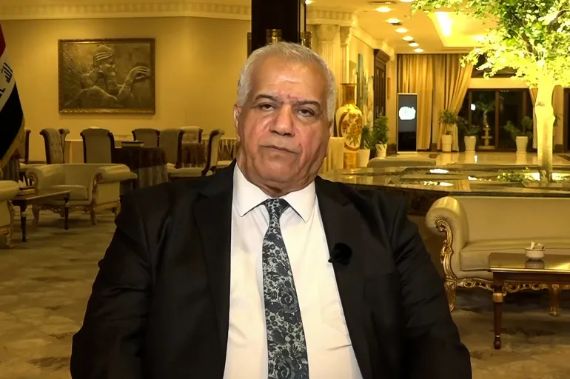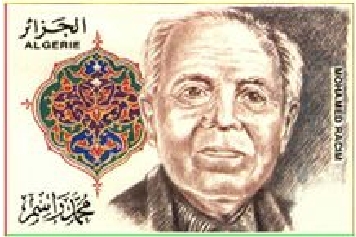By Hussain Hindawi
LONDON, Jan. 2 (UPI) — The case of Richard Reid, the Muslim Briton now being held for allegedly attempting to blow up the American Airlines plane on which he was traveling from Paris to Miami, has provoked intense debate both in and outside Britain’s Muslim community over the role of fundamentalist clergymen and preachers, particularly those assigned to British prisons.
The 28-year-old Reid — an Anglo-Jamaican Muslim convert now known as “The Shoe Bomber” because of the explosives said to be in his shoes — had been a regular attendee of a mosque in Brixton, South London since his conversion a few years ago while serving a sentence in a British prison for minor offences.
Abdul Haqq Bakr, the mosque’s chairman for the past eight years, believes Reid embraced extremism after leaving jail when he met some of the “most extreme elements” in London’s Muslim community. At that point, Reid started wearing military gear and talking about fighting a jihad or holy war.
Reid took the name Abdel Rahim, and according to Bakr, attended the mosque for instructions in mainstream Islam. But Bakr said Reid soon began to denounce his teachers as too “passive” in the face of perceived Western injustice.
Bakr estimated that out of as many as 1,000 extremist Muslims in the Britain, at least 100 were potential suicide bombers.
Before the Sept. 11 terrorist attacks on New York and the Pentagon, small protests were often organized in front of London’s main mosques in support of the Palestinians and Chechnya. The protestors mainly included Arabs from North Africa and some Europeans who had converted to Islam and who were often bearded and dressed in white clothes.
They were believed to be followers of extremist groups influenced by the Wahhabi (Saudi fundamentalists), or by the Algerian militant Ali Balhaj and Egyptian Ayman Al-Zawahiri, a prominent figure in Islamic Jihad.
By contrast, most of those praying in the mosques avoided extremists. There are more than 2 million British Muslims and available statistics indicate that nearly 1,000 mosques stand in England alone. Most of these are old or deserted churches, or houses transformed by Muslims for worship to accommodate the needs of a growing Muslim community.
Some sources claimed that Reid was somehow connected to Zacarias Moussaoui, a French citizen of Moroccan origin. Moussaoui, the only person thus far charged in connection with the Sept. 11 attacks, regularly worshipped at the same Brixton mosque as Reid.
Whether the two actually met is still open to question. Also unconfirmed is whether Reid acted alone or as part of a larger network — despite rumors of a possible connection to Osama bin Laden’s al Qaida network and the training camps in Afghanistan.
But Bakr said he does not believe Reid could have acted alone. The mosque’s chairman claimed that he has received many threats from extremists groups who want to use the mosque to propagate their ideas among young worshippers. Though still a minority in the Muslim community, extremist groups have been “growing frighteningly over the past four or five years.” Five years ago Bakr warned the London police about his concern over extremist elements, but no action was taken.
The Brixton mosque, which was constructed in 1990 in southern London, has some 400 worshippers and offers services to Muslims of Caribbean origin –mostly newcomers to Islam — regarding marriage, divorce, Arabic language and Islamic studies.
The increasing Islamic conversions by British youth of Caribbean and African origins have been fueled recently by three main factors:
— Marginality: Feeling as outcasts in British society despite the importance of the anti-racism laws.
— Admiration: Looking up to major black personalities of African origin who converted to Islam, especially Malcolm X, Mohammed Ali Clay, singer Cat Stevens, and Louis Farrakhan, whose Islamic Nation group is active in Britain.
— Fulfillment: Bonding among students and youth the “special brotherhood care” provided by the Islamic centers.
Since fundamentalist organizations were allowed to provide radical preachers for Muslim prisoners, many British Muslim prisoners have been indoctrinated in Islamic extremism. Now, moderate Islamic community leaders have urged British prison authorities to consult with them before visiting clergymen are appointed to the jails.
Customarily, a Muslim commissioner is appointed to visit Muslim prisoners and ensure that they have books and proper food, while preachers go to prisons at least once a week to lead Friday prayers. Such measures reflect the rising number of Muslims in British jails over the past decade who have made Islam the second largest religion among prisoners.
Sources familiar with Britain’s Muslim community say many radical groups brought in preachers who knew nothing about the United Kingdom’s culture system and only cared about attracting Muslim youths to their extremist views.
However, a spokesman for the British Islamic Council called reports about the spread of Islamic extremism in Britain, and its jails in particular, overblown.
David Wilson, a former prison official who conducted a study of more than 4,000 Muslim prisoners supports this view. His study, he said, did not indicate that government-appointed clergymen to British prisons were extremists.
Wilson said the preachers faced “constantly bad and racist treatment” and “unbearable conditions in prisons where they performed a great role and had nothing to do with extremism.”
In a recent report, Wilson stressed a strong spirit of solidarity among Muslim prisoners who face difficulties in practicing their religion. He said it was highly exaggerated to describe such a solidarity as extremism.
Wilson also emphasized that it took 10 years to appoint the first Muslim consultant in British jails in 1999.
While the Sept. 11 events ushered in a new era internationally, the Reid incident opens a new phase in the history of the Islamic community in Britain, one of the most settled and well established outside the Islamic world.
Its journalists and spokesmen have clearly distanced the community from the “scoundrels” like the Egyptian Abu Hamza al Masri and the Syrian-born Omar al Bakri who give the community a bad name and are used as an excuse to attack it.
-0-
(Hussain Hindawi is the editor of United Press International’s London-based Arab News Service. His column is published simultaneously in English and in the Arab media, and does not necessarily reflect the views of UPI.)



